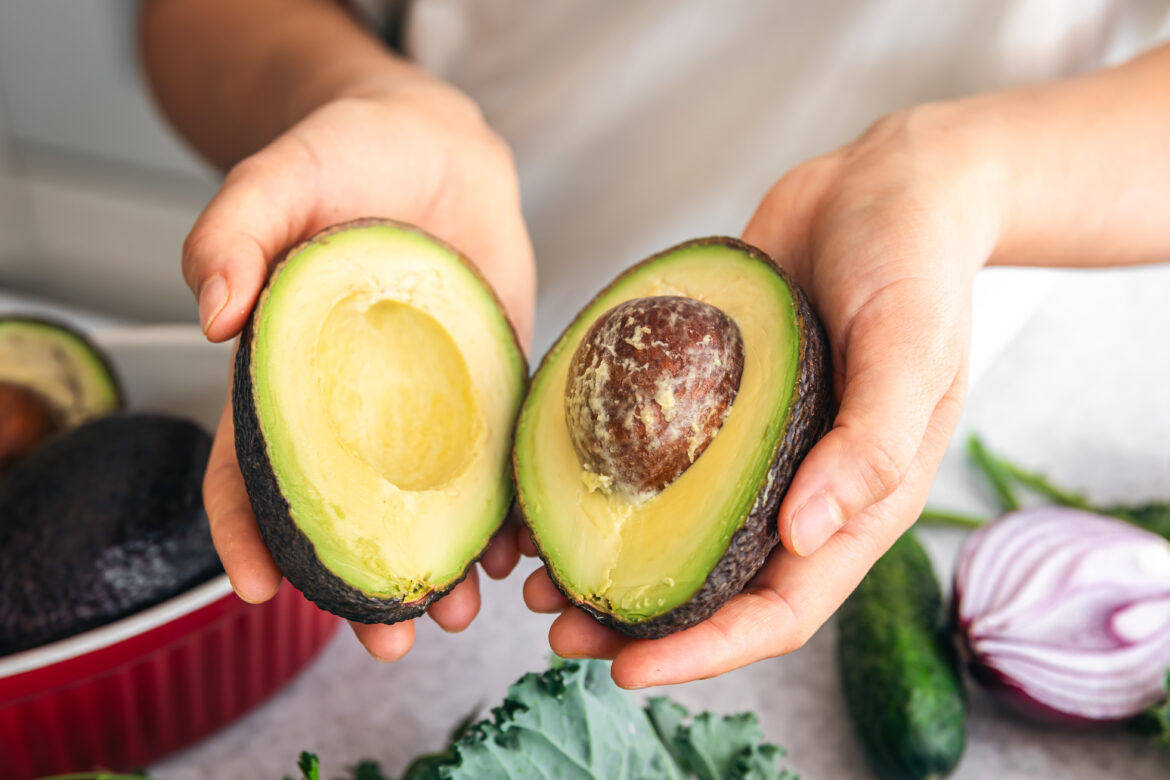Eating an avocado every day can have a number of positive effects on your body, as long as it fits into your overall balanced diet. Avocados are nutrient-dense and packed with healthy fats, fiber, vitamins, and minerals. Here’s what could happen if you include one in your daily diet:
1. Improved Heart Health
- Monounsaturated Fats: Avocados are rich in monounsaturated fats, particularly oleic acid, which has been shown to reduce bad cholesterol (LDL) levels and lower the risk of heart disease. This type of fat also helps raise good cholesterol (HDL).
- Potassium: Avocados are also high in potassium, which helps manage blood pressure by balancing sodium levels and supporting healthy muscle function, including the heart.
2. Better Digestion
- Fiber: One avocado contains about 10 grams of fiber, which is important for gut health. The fiber helps regulate bowel movements, prevent constipation, and may contribute to better digestion and a healthier gut microbiome.
- Gut Health: The fiber in avocados, especially the soluble type, helps feed beneficial gut bacteria, which is crucial for overall digestive health.
3. Improved Skin and Hair
- Vitamins and Antioxidants: Avocados are packed with vitamins C and E, both of which help protect skin from oxidative damage caused by free radicals and UV rays. Vitamin E, in particular, is important for skin hydration and elasticity, which can promote a youthful appearance.
- Healthy Fats: The healthy fats in avocados also contribute to healthy, moisturized skin and hair by supporting the structure of cell membranes.
4. Better Weight Management
- Satiety: The combination of healthy fats and fiber in avocados helps promote a feeling of fullness, which can reduce overall calorie intake and prevent overeating. While avocados are calorie-dense, their satiating effect can help with portion control.
- Balanced Blood Sugar: The healthy fats and fiber may help regulate blood sugar levels and reduce insulin spikes, making them beneficial for people with type 2 diabetes or those trying to manage their weight.
5. Improved Nutrient Absorption
- Fat-Soluble Vitamins: The healthy fats in avocados help enhance the absorption of fat-soluble vitamins (A, D, E, and K). Pairing avocado with salads or vegetables can significantly increase the absorption of these nutrients, which are important for various bodily functions.
6. Anti-Inflammatory Effects
- Antioxidants: Avocados contain powerful antioxidants such as lutein, beta-carotene, and vitamin E, which can help reduce inflammation in the body and protect cells from oxidative damage. Chronic inflammation is linked to many health problems, including cardiovascular disease and arthritis.
7. Brain Health
- Omega-3 Fatty Acids: Avocados provide a modest amount of omega-3 fatty acids, which are important for brain function and may help protect against cognitive decline as you age.
- B-Vitamins: Avocados also contain B-vitamins like folate, which is essential for brain health and cognitive function, as well as for cell repair and the formation of red blood cells.
8. Boosted Immune System
- Vitamins C and E: These vitamins not only support healthy skin but also help protect against infections and boost overall immune function. Vitamin C, in particular, supports the production of white blood cells and acts as an antioxidant.
9. Potential Downsides
While eating an avocado every day can be healthy, there are a few things to consider:
- Calories: Avocados are relatively calorie-dense. Eating one a day could add around 150–250 calories, depending on the size. For people monitoring their calorie intake, this could be a concern if not balanced with other parts of the diet.
- Allergies: Some individuals may have avocado allergies, although this is rare.
- High Potassium: For those with kidney disease or certain medical conditions, excessive potassium intake could be a concern, so it’s important to monitor and consult with a healthcare provider.
Conclusion:
Eating an avocado every day can provide a range of health benefits, especially for heart health, digestion, skin, and weight management. The key is to balance it within a healthy overall diet to ensure you don’t overconsume calories. If you’re generally healthy, there’s no reason not to enjoy one daily—it’s a nutrient-packed food that supports many aspects of well-being!






